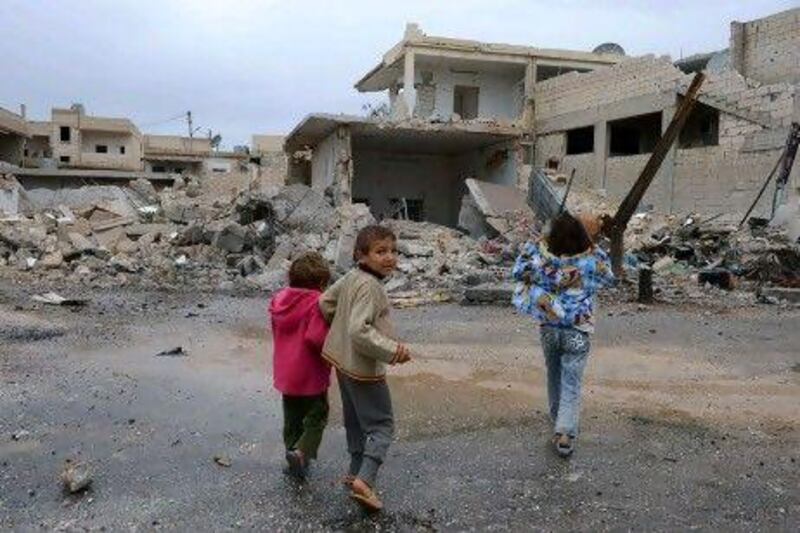DOHA // Syria's largest opposition group, the Syrian National Council, elected a new executive leadership yesterday, as dissidents from across the political spectrum looked poised to join a US and Qatari-backed plan for a unified opposition council.
The new council, which will likely be announced today, would broaden the range of opposition forces under a single umbrella and increase the representation of Syria-based dissidents and rebel fighters.
At the outset of talks here in Doha last Sunday, the plan faced opposition from the existing SNC.
The SNC has itself faced criticism in recent months for being composed of exiles largely out of touch with the fighting on the ground in Syria.
On Friday night, the SNC elected veteran opposition figure George Sabra as its head
Mr Sabra, a Christian residing in Turkey, was one of two candidates that the SNC's executive council chose from in a ballot counted in front of reporters and council members.
But after late-night talks, the mood took an optimistic turn yesterday, said delegates in Doha.
"The SNC will not be an obstacle to this new initiative," said Radwan Ziadeh, an SNC member who had previously expressed doubts about the US-backed plan.
One promising indication mood at the talks, according to those attending. Previous opposition meetings had broken down into fist fights and shouting matches, but in Doha the atmosphere has been more cordial.
Despite signs of progress, the talks seemed light years away from northern Syria where the leader of the largest military group in the country, the Free Syria Army (FSA), announced that his forces were also reorganising in a bid to win international support.
Mustafa Sheikh, who heads the military council that presides over the FSA, said the forces would be reconfigured into five regional commands that could serve as a national army in waiting. "We are getting closer and closer to becoming organised, so that we can get to a stage that is accepted by the international community," he said.
Mr Sheikh also criticised the SNC, accusing it of backing partisan militias rather than the unified military command.
"Now for the first time, when everyone is together, we say no one should be impolite with one another," said Riad Seif, a prominent dissident who left Syria in June and is leading the push for the unified council. "It's not [right] to make a war between us while Syrians are dying."
The new council, called the Syrian National Initiative (SNI), would likely be composed of about 60 members, said participants of the discussions.
The SNC will not cease to exist in the new SNI but would become one of the forces represented. The new council would also include members of the Local Coordination Committees (LCC), which have been running many of the logistics of the uprising on the ground. A handful of LCC members were present at the negotiations yesterday.
Late on Friday, the LCC said in a statement it was withdrawing from the SNC, claiming it had failed to adopt “serious and effective” reforms.
Diplomats say they hope that the new organisation would be able to serve as a legitimate, single interlocutor representing the Syrian opposition. The West and its regional allies worry that were Syria's president, Bashar Al Assad, to fall before the opposition unites, increasingly powerful Islamist militia would quickly take control of the country.
But several sticking points emerged during talks yesterday evening to finalise the new initiative. SNC members said they were seeking guarantees that the international community would offer the new council diplomat recognition, financial support, and arms to fight against Mr Al Assad's forces.
The procurement of arms has been the touchiest issue of the discussions. The United States, in particular, has been adamant that it would not arm the opposition. But SNC members said they hoped that the US would look the other way while Gulf states facilitated the flow of weapons.
"The United States has said they will not give arms, but they can give the green light to the Saudis and Qataris to allow advanced weapons to the opposition," Mr Ziadeh said.
Despite the news of a likely deal, diplomats warned that it could take time for any new opposition body to become the unified coordinator of all the opposition elements.
edickinson@thenational.ae






